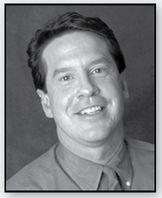Nolo's Essential Guide to Buying Your First Home (36 page)
Read Nolo's Essential Guide to Buying Your First Home Online
Authors: Ilona Bray,Alayna Schroeder,Marcia Stewart
Tags: #Law, #Business & Economics, #House buying, #Property, #Real Estate

BOOK: Nolo's Essential Guide to Buying Your First Home
7.52Mb size Format: txt, pdf, ePub
Your state or local housing financing agency may sponsor special home financing programs at competitive rates and with low-down-payment options for first-time homebuyers. Also look for other local benefits, such as down payment assistance or local tax credits.
CHECK IT OUTLooking for more information on state and local homebuyer programs?
See the HUD website, at
www.hud.gov/buying/localbuying.cfm
.
What’s Next?Now that you understand all your financing options, you’re ready to get out there and buy a house. Chapter 8 shows how to make the most of your house search.
CHAPTER
8
8

I Love It! It’s Perfect! Looking for the Right House
Meet Your AdviserMark Nash
, an Associate Broker with Coldwell Banker, who serves the Chicago, Evanston, Skokie, and Wilmette areas of Illinois (
www.marknashrealtor.com
).
What he doesWhen Markʹs not working with homebuyers (or sellers), he shares his expertise through books, articles, and media interviews. Among his many books, youʹll want to check out
1001 Tips for Buying and Selling a Home
, about which the Library of Congress invited him to come to Washington, DC, and make a presentation. For the past ten years, Mark has helped hundreds of people buy their first home in Chicago and its suburbs. Heʹs toured thousands of homes as a Realtor
®
and as a real estate investor.First houseʺIt was an 800-square-foot place across from Wonder Lake in Illinois, in a community then mostly used by vacation owners. The view was beautiful, with an empty lot between me and the lake. But the house itself was pretty tired—my mother, who was quite the suburban type, stood in the tiny kitchen (7’ x 7’), leaned out over the sink, and said, ʹMark, this is the craziest thing youʹve ever done.ʹ But by the time I sold it, the area was in greater demand by full-time owners, and it went for three times what I paid for it.ʺFantasy houseʺThe older I get, the less space I want. How a house is finished is more interesting—I like high-quality flooring, cabinetry, and trimwork. As for location, Iʹd take either Gualala, California (I rented a house on the Pacific there once), or the beach in Naples, Florida.ʺLikes best about his workʺThe people part. For me, real estate is more about people than houses. Iʹve worked with some homebuyers for ten years, from their first home on up. For example, I helped one couple now in their 50s buy a series of homes, then I worked with the wifeʹs brother, and most recently her parents, who are downsizing into a condo. Iʹm not exactly part of the family, but Iʹve sure gotten to know them well. Thereʹs a lesson in that for first-time homebuyers—make sure your agent is the type who attracts return business.ʺTop tip for first-time homebuyersʺDonʹt overspend. The first house is for you to get into the market. You donʹt want to spend all your disposable monthly income. Have a life, go out to dinner, go hiking, kayaking, or whatever. Iʹve seen people spend so much on a house they were unable to personalize it or even buy furniture. I could show you 4,000-square-foot houses where the buyer has been able to furnish only one room—sure, they can brag about their square footage, but they canʹt even invite anyone in!ʺCD-ROMFor more tips from Mark Nash, check out his audio interview on the CD-ROM at the back of this book.
T
he brakes are off, and you’re ready to visit houses that seem to match your Dream List, and choose one. “Whatever you do, don’t settle,” says Realtor
®
Maxine Mackle (after nearly 20 years of experience in the Connecticut market). “You should be really enthusiastic about a house before you make an offer on it.”
he brakes are off, and you’re ready to visit houses that seem to match your Dream List, and choose one. “Whatever you do, don’t settle,” says Realtor
®
Maxine Mackle (after nearly 20 years of experience in the Connecticut market). “You should be really enthusiastic about a house before you make an offer on it.”
But first, breathe deeply and cultivate some nonattachment. Sellers of beautiful houses usually know they’ve got a gem and price it accordingly. Meanwhile, the market contains its share of duds: houses with dark rooms, weird layouts, and repair nightmares. This doesn’t mean your perfect house isn’t out there, just that you’re unlikely to find it on day one. So to make your search productive, we’ll show you how to:
How Your Agent Can Help• get help from your real estate agent, friends, and neighbors
• compare each house with your Dream List, looking past the fancy furniture or staging, the need for fixing up, or the shininess of a recent remodel
• see whether you can live with the layout
• review disclosure and other information you receive from the seller
• do your own, informal inspection for repair issues, and
• understand how to approach buying a not-yet-constructed house, or one in a common interest development (CID).
While you should take an active role in househunting, your agent’s expertise will be invaluable in several ways.
Survey Says:The average homeowner looks at 10-15 houses before buying one. Some must be looking at a lot more than 15, so don’t sweat it if you’re among them! One of this book’s coauthors looked at over 200 houses before buying (she had a
very
patient agent).
Identifying appropriate houses.
Using the Multiple Listing Service (MLS) database, your agent can access far more information than the general public (unless you work with a brokerage like ZipRealty, which gives its clients full access). Illinois Realtor
®
Mark Nash explains, ‘The MLS helps me tell buyers things like how long the house has been on the market, its current status (‘active,’ ‘under contract,’ ‘sale pending,’ or ‘closed’), what its existing mortgage is, and more. I’ve had clients say, ‘Don’t call me unless something comes up within this one city block,’ so I keep tabs on such things through the MLS.’ And when there’s a glut of available houses during a down market, many of which may have been sitting unsold for a while, I can help buyers sift through to find the gems.”
Using the Multiple Listing Service (MLS) database, your agent can access far more information than the general public (unless you work with a brokerage like ZipRealty, which gives its clients full access). Illinois Realtor
®
Mark Nash explains, ‘The MLS helps me tell buyers things like how long the house has been on the market, its current status (‘active,’ ‘under contract,’ ‘sale pending,’ or ‘closed’), what its existing mortgage is, and more. I’ve had clients say, ‘Don’t call me unless something comes up within this one city block,’ so I keep tabs on such things through the MLS.’ And when there’s a glut of available houses during a down market, many of which may have been sitting unsold for a while, I can help buyers sift through to find the gems.”
TIPNo need for embarrassment, your agent has heard it all.
Some agent’s stories might as easily have come from a therapist: homebuyers they’ve counseled about whether to have children, couples whose divorces they predicted. Get used to your agent knowing your private concerns, but try to work out any disagreements on your own. A house visit isn’t the place to argue about whether you need an extra bedroom for your mother-in-law to live in.
Apart from the MLS, the agent has been watching the market for longer than you and may hear about houses coming up for sale long before they’re advertised—valuable even in a down market, where the most desirable houses become the focus of buyers’ interest. You’ll be driving along and hear your agent say, “If you can wait another week, that house will be on the market.”
Identifying reasonable sellers.
Especially when the market is changing, some sellers may be stuck in the past, or bent on getting a certain price. Your agent may be able to find out which houses’ sellers are worth negotiating with or are ready to drop their price.
Especially when the market is changing, some sellers may be stuck in the past, or bent on getting a certain price. Your agent may be able to find out which houses’ sellers are worth negotiating with or are ready to drop their price.
Arranging showings.
Your agent should take you to tour homes you’re interested in—more than once per house, if need be.
Your agent should take you to tour homes you’re interested in—more than once per house, if need be.
Helping evaluate houses.
Another set of eyes can be a great help when visiting houses. Your agent may point out defects that you missed or possibilities you hadn’t imagined. Just don’t let your agent’s judgment overtake your own. And don’t be shy about visiting houses without your agent—you can always bring the agent back for a second look. (And you absolutely
should
bring your agent back into the process when it’s time to prepare an offer.)
Another set of eyes can be a great help when visiting houses. Your agent may point out defects that you missed or possibilities you hadn’t imagined. Just don’t let your agent’s judgment overtake your own. And don’t be shy about visiting houses without your agent—you can always bring the agent back for a second look. (And you absolutely
should
bring your agent back into the process when it’s time to prepare an offer.)
Other books
In Praise of Hatred by Khaled Khalifa
The Red Scream by Mary Willis Walker
Forget Me Not by Sue Lawson
Hot Property by Karen Leabo
The Original Curse by Sean Deveney
Wish by Barbara O'Connor
LIKED - A Dark Romance Novel (Story of Dangerous Obsession and Lust) by Quippley, Diana
Skin Deep by T. G. Ayer
Arucard (Brethren Origins Book 1) by Barbara Devlin
The Andreasson Affair by Raymond E. Fowler, J. Allen Hynek



